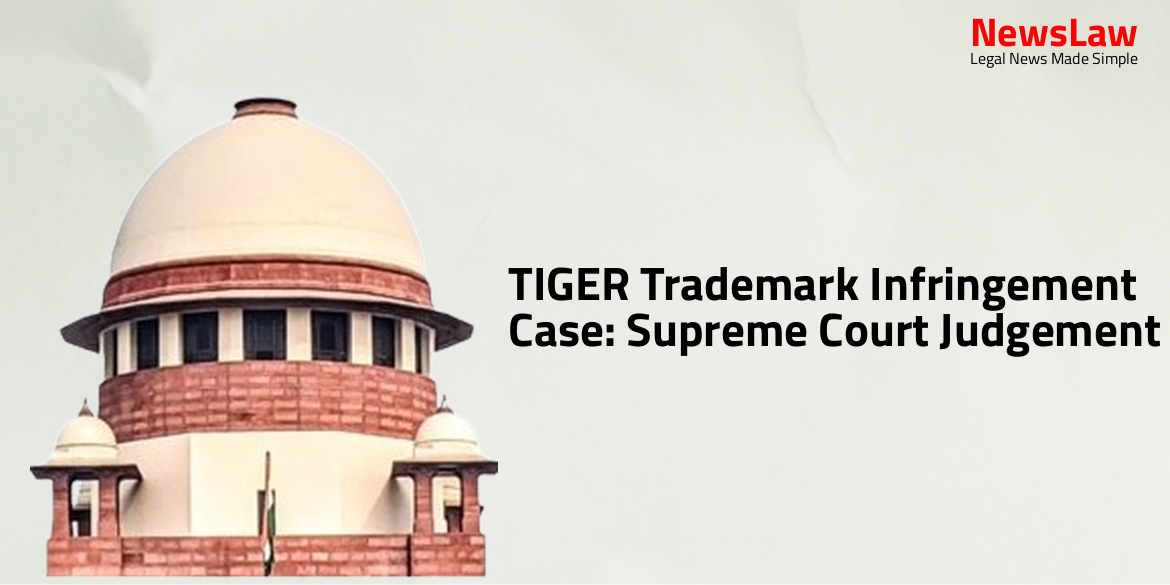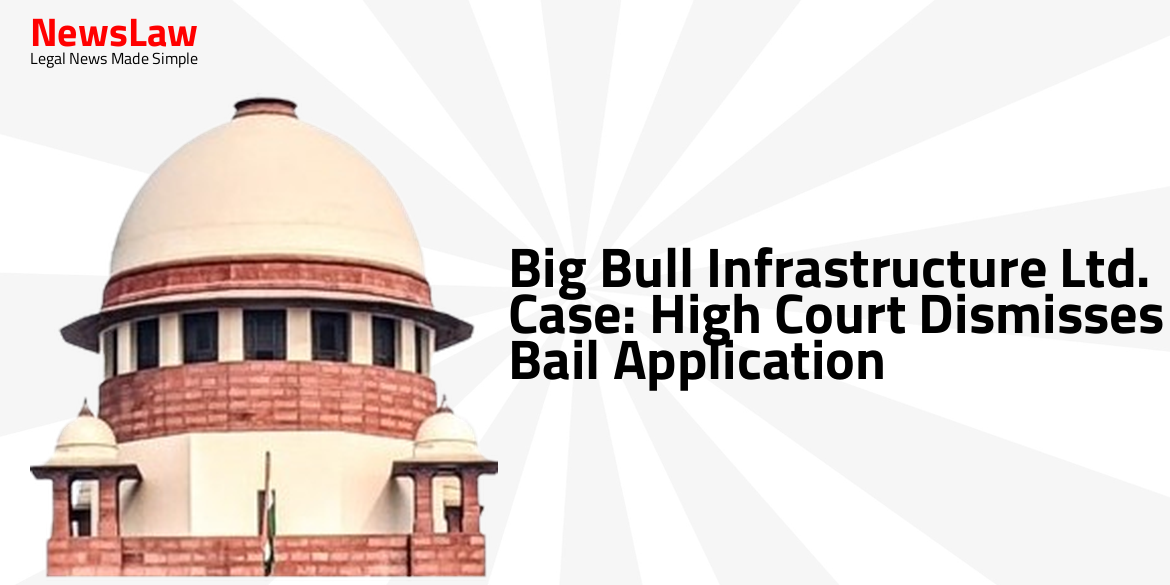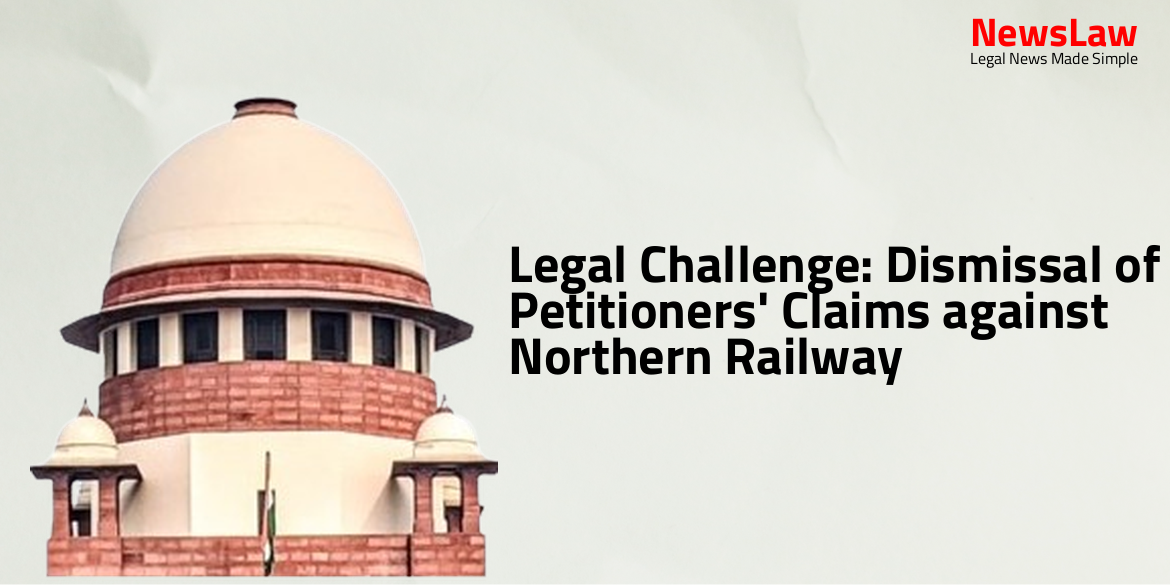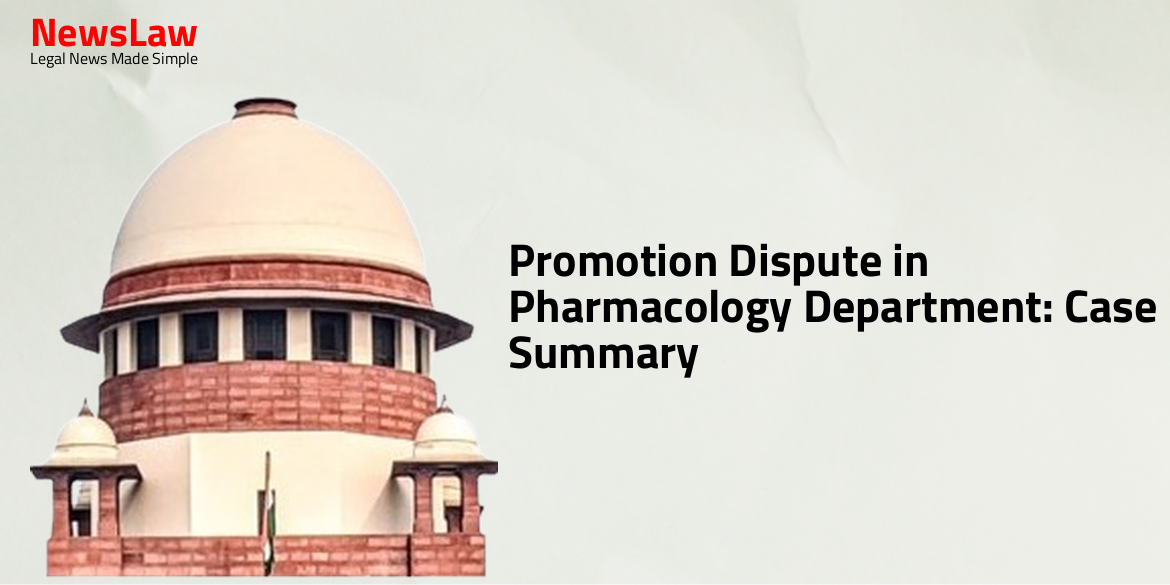In a significant legal battle between the parties involved in the TIGER trademark infringement case, the Supreme Court of India has handed down a decisive judgement. The case sheds light on the importance of honest adoption of trademarks and the consequences of deceptive practices in the business world. Stay tuned to learn more about the details of this crucial ruling.
Facts
- Plaintiff applied for trademark ‘TIGER’ in 2003 and defendant applied in 2017.
- Plaintiff claimed to have been using ‘TIGER BRAND’ since 2017.
- Defendant refuted the claim stating watermark on plaintiff’s invoices only appeared from 2015 onwards.
- Defendant applied for trademark registration in 2017 on ‘proposed to be used’ basis.
- Invoices of plaintiff did not match copies obtained from parties by defendant.
- Plaintiff alleged defendant created confusion in the market regarding trademark change.
- Plaintiff obtained registration of the mark in 2021.
- Defendant, being a former marketing executive of plaintiff, had knowledge of the market.
- Plaintiff claimed to be an honest and bona fide user of the trademark for agricultural pipes.
- A complaint was filed against defendant for using ‘TIGER’ mark in 2017.
- Defendant argued plaintiff adopted the mark in 2018 after defendant’s trademark application.
- Defendant claimed plaintiff used other marks like ‘KING’, ‘KARTIK’, ‘SHERA’, and ‘EXPLODE’.
- Defendant filed a rectification against plaintiff’s trademarks alleging ‘TIGER’ was common.
- Photographs showed defendant was an employee of plaintiff in 2014 using the ‘TIGER’ mark on products.
- Plaintiff’s trademark registration for ‘TIGER’ is still in use as per defendant’s counsel.
Arguments
- Third-party copies of invoices showed no watermark on them.
- Defendant claimed plaintiff fabricated invoices with interpolated watermark to show they were in use.
- Defendant applied for trademark registration for ‘TIGER’ on ‘proposed to be used’ basis
- Argument of ‘TIGER’ being used by various users in classes 17 and 19 may not help defendant due to dishonest adoption of identical mark.
- Reference made to the case of Ishi Khosla v. Anil Aggarwal where defendants added ‘Diet’ as a prefix after adopting plaintiff’s trademark ‘Whole Foods’.
- Plaintiff’s counsel rebutted the defendant’s reliance on other ‘TIGER’ trademarks registered in classes 17 and 19, pointing out the limited relevance of those registrations and lack of significant threat to plaintiff’s distinctiveness based on the case of Pankaj Goel v. Dabur India Ltd.
- Plaintiff is not expected to sue all third-party infringers not impacting plaintiff’s business
- Counsel for plaintiff relied on video-captures from 2014 to show defendant present during packaging of plaintiff’s products
- Defendant’s presence in warehouse during packaging process of ‘TIGER’ brand products shown in CCTV footage
Analysis
- Defendants attempted to adopt the plaintiff’s trademark ‘Whole Foods’ by adding ‘DIET’ to their mark, utilizing a similar style, labels, and packaging.
- Defendants were former employees of the plaintiff who operated a chain of pizzerias under the name ‘La Pino’z Pizza’.
- Plaintiff’s application for trademark registration for ‘TIGER’ was made in 2018, claiming use since June 2003.
- Defendants’ adoption of the ‘TIGER’ mark was deemed dishonest based on evidence provided by the plaintiff.
- Defendants were franchisees of the plaintiff and later formed a company using a similar mark ‘Hitech’.
- Defendants’ use of marks similar to the plaintiff’s after termination of the agreement was found to be deceptive.
- Plaintiff’s evidence included colored photographs from surveillance cameras showing the defendants in the plaintiff’s factory premises.
- Plaintiff’s claim of user rights to the ‘TIGER’ mark since 2003 was supported by numerous invoices presented in court.
- Defendants’ argument of watermark interpolation was refuted, with plaintiff demonstrating continuous use of the mark.
- Plaintiff’s non-action against other infringers did not weaken its case for trademark infringement against the defendants.
- Defendants’ attempt to justify their adoption of the plaintiff’s mark was dismissed based on the documented evidence.
- Defendants’ changing arguments regarding mark registration and adoption were not supported by the presented court documents.
- In cases of dishonest adoption of a trademark, greater attention should be paid to items of similarity and less to items of dissimilarity.
- The adoption of a deceptively similar mark by a defendant can be considered dishonest and mischievous, especially if there is a past contractual relationship with the plaintiff.
- Court decisions have emphasized that an injunction should be granted if there is prima facie evidence of dishonest adoption of a mark, even if the similarity is not substantial.
- The act of appropriating someone else’s trademark, especially by ex-employees of the plaintiff, is viewed as dishonest and deserving of legal action.
- Dishonest adoption of a trademark of a prior entrant in the market is strongly discouraged by the courts.
- Honest adoption of a mark is a crucial factor in trademark infringement cases.
- First defendant’s adoption of the mark was based on the acquisition of the second defendant.
- At this stage, the court finds that the first defendant’s adoption may not be considered honest.
- Plaintiff is entitled to an injunction in their favor under Order XXXIX Rule 1 and 2 of CPC.
Decision
- Defendant and all those acting for him are restrained from using the mark ‘TIGER’ or any similar mark to plaintiff’s registered mark ‘TIGER’.
- Defendant must discontinue all existing packaging and promotional material within 3 weeks.
- Case disposed with the mentioned directions.
- Listed before Joint Registrar on 10 May, 2024.
- Judgment to be uploaded on the website of the Court.
Case Title: MR SANJAY ARORA Vs. JASMER (2024:DHC:3221)
Case Number: I.A.-14318/2022



